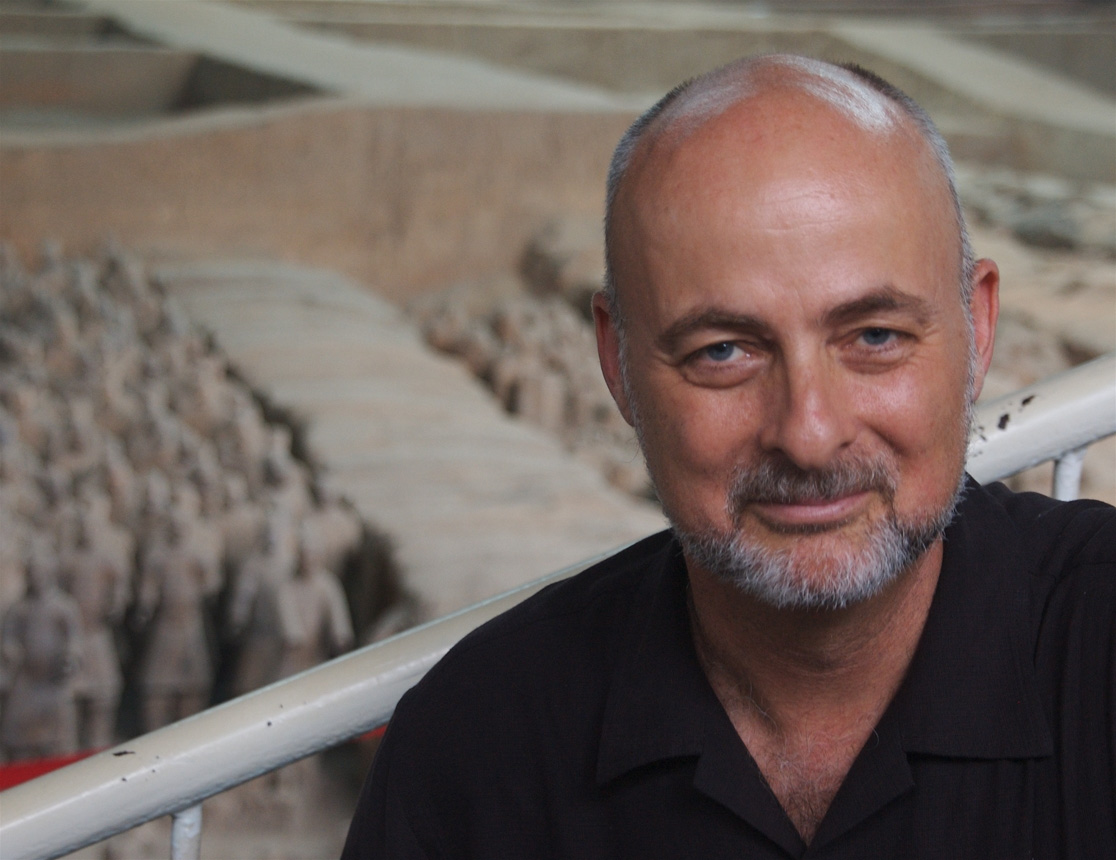Like most science fiction authors, David Brin finds his mind chock-full of futuristic thoughts as well as story ideas. He delivers the goods constantly, as shown by his more than 25 sci-fi novels, several of them bestsellers. However, what separates Brin from many of his sci-fi peers is his commitment to and practice of advanced ideas in education, many of which have landed in robotics and STEM. He’s also a participant in the USA Science & Engineering Festival’s Nifty Fifty Program, visiting schools in the Washington D.C. area and getting students excited about STEM.
Two years after meeting Brin at the Southern California Writers Conference where he was a keynote speaker, we had the opportunity to reconnect and discuss his passions and the direction of education.
Innovation & Tech Today: David, what has fed the spirit of innovation and convergence of science, technology, engineering, and math that defines STEM today?
David Brin: The can-do spirit has always been a substantial part of the American experience. One hundred years ago, every boy learned telegraphy, and this was the launching point for Thomas Edison. Awhile later, it was bicycles and motorcycles, which became the platform from which the Wright brothers took us into the sky. And every kid seemed to have grease-stained hands from working on cars, which had a major effect in World War II with jeeps, trucks, and tanks. This tendency continued with hobbyists who explored the mysteries of electronics; some became billionaires.
I&T Today: What do you make of the use of computers today in advancing the innovative ideas of young people?
DB: In recent years, there is a fear that this tradition had been broken, because the technologies were too difficult to do at home and in the garage. Instead, a generation seems mired in video games, which taught no useful skill except perhaps to become a drone or fighter pilot. But in recent years, the maker movement has really taken off with cities and high schools catering to an almost inherent desire to apply the skill with curious hands and minds.
I&T Today: How has this manifested?
DB: In the robotics leagues that now have teams in up to 10,000 high schools across the country. Dean Kamen’s FIRST robotics league has at least 7,000 high schools. The robotics are part of this revolution, but it’s going to really take off when the biologists do giant labs that compress to desktop units. Any teenager on the planet (will be able to) sit before her molecular Mac and synthesize any organic compound.
I&T Today: What has impressed you most about the pace of tech development and adoption in your 40-plus years as a sci-fi writer?
David Brin: Probably the most amazing jujitsu move that any civilization ever pulled was in the late 1980s bill that Al Gore pushed through Congress, to have the Internet free of almost all government control. It is simply to let it fly free all over the world. People ridiculed Gore for claiming that he “invented the Internet,” which he did not claim, but he probably has a better claim to that title than anyone except Vinton Cerf (who helped develop it in the late 1960s and 1970s). This judo move liberated several billion people with access to the entire sum of human knowledge to communicate freely across all borders. Now, Elon Musk, Google, Facebook, and a number of other groups are aspiring to launch swarms of satellites and drones that will let anyone in the planet uplink without having to go through national servers.
I&T Today: What impact do you feel that social media and its ability to broadcast information instantly — and create networks — has made on today’s kids?
David Brin: I am unimpressed with social media. Call me an old grouch, but I do not see people engaging in elevating conversations in 140 characters. Likewise, Facebook does not engender deep thinking. We need innovations in social media that subtly encourage interest in areas vital to education and achievement, and to create those conversations and experiences. I have some patents in this area. But now is not the time to discuss that. And we need to always remember that face-to-face learning and face-to-face conversations will always be the best way.
I&T Today: How has art been affected by technological developments over the last several years?
David Brin: Among the things that nobody would’ve expected would be the death of melody. In the 60’s, it seemed as though there was a never-ending supply of wonderful melodic tunes. This had a resurgence in the 80’s, but since then we’ve gotten used to the notion that musicians must create variations in rhythm and beat and poetry or remix earlier melodies. What we’ve come to realize is that melodic forms are a limited resource mathematically. It’s not that we were better, it’s just the first time the civilization had unleashed such a high ratio of talent. Our parents came home from World War II and were building a white picket fence. And, for the first time, for an entire generation, if you had musical talent you got music lessons. That never happened in the history of humanity. How many musicians were born in Mozart’s time, but were passed over or died young? In our generation in America, the unleashing of such vast amounts of talent all at once created a storm that basically devoured the available melodies. I hate to depress you, but we are finding other ways to be creative. It shows that the future is sometimes controlled by resources.









